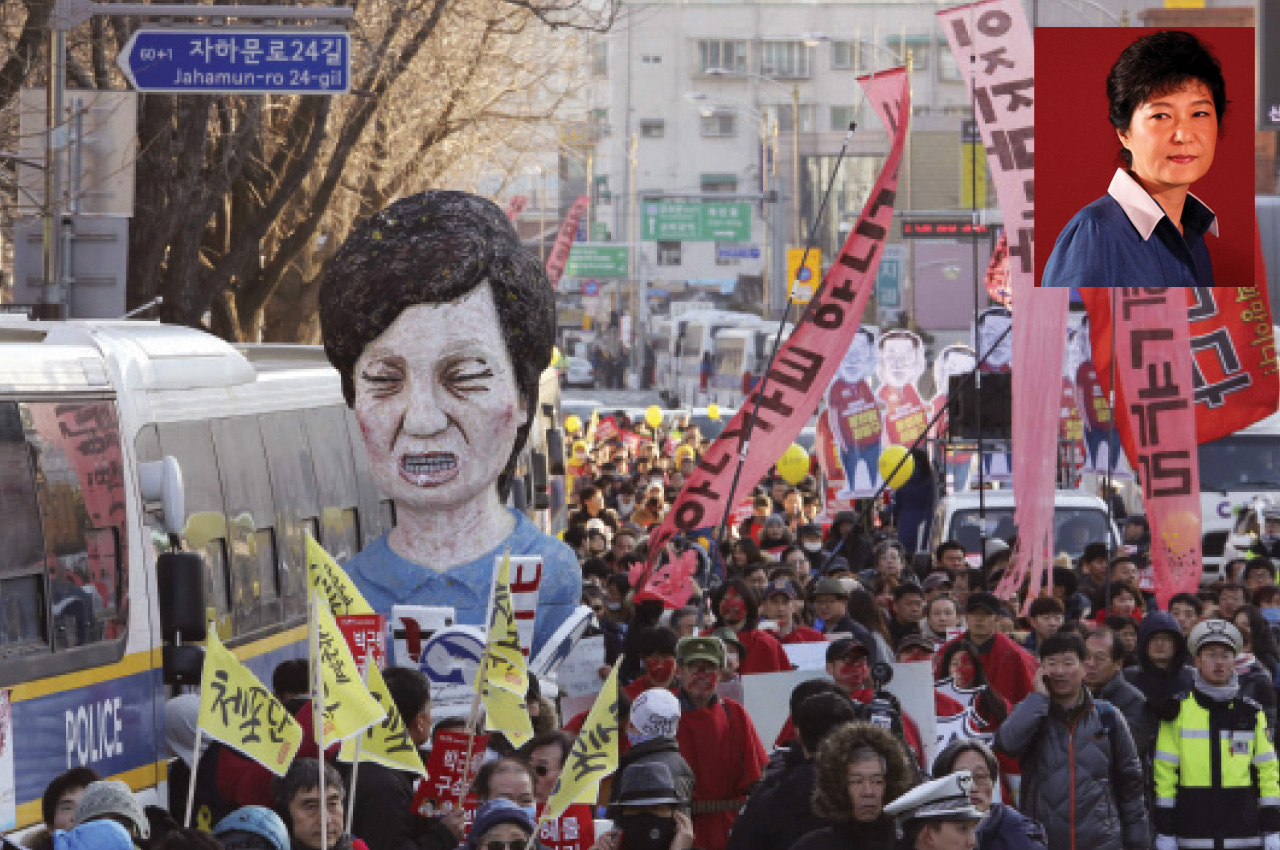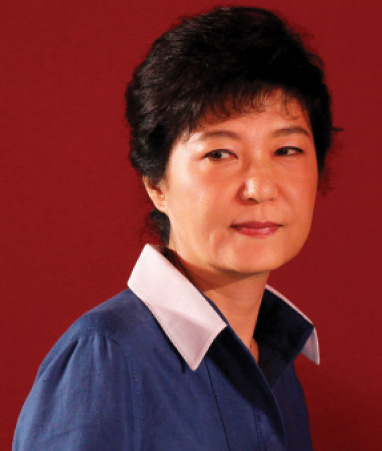 Lawmakers in South Korea’s National Assembly voted overwhelmingly on December 16 to impeach President Park Geun-hye over a corruption scandal. The vote was 234-56, with six abstentions.
Lawmakers in South Korea’s National Assembly voted overwhelmingly on December 16 to impeach President Park Geun-hye over a corruption scandal. The vote was 234-56, with six abstentions.
The country’s Constitutional Court will now deliberate the impeachment motion, a process that could take up to 180 days.
Park apologized on national TV following the vote, saying she was careless and had caused a “big national chaos” — an apparent reference to her sharing classified information with a confidante lacking security clearance.
“I solemnly accept the voices of the National Assembly and the people and sincerely hope that the current confusion will come to an end in an orderly manner,” said Park, the country’s first female leader.
“… I will respond to the impeachment judgment of the constitutional court and the investigation of the special prosecutors, following the procedures set by the constitution and the law with (a) calm mind-set and then will accept its decision.”
Prime Minister Hwang Kyo-ahn will be acting President for the duration of the court’s deliberation.
He vowed to “run state affairs in a correct and transparent manner.”
“I earnestly and humbly ask all of you to unite so that the voices on the streets can be sublimated into the driving force behind the effort to overcome the current national crisis,” Hwang said.
Under the South Korean Constitution, impeachment requires a two-thirds majority of the 300-member legislature to pass.
Growing South Korean protests demanded President Park’s resignation.
Thousands took to the streets to celebrate the news. National Assembly Speaker Chung Sye-kyun made the announcement, saying lawmakers had an obligation to restore order and to execute the functions of the government.
Park has faced massive protests since it emerged that her confidante and adviser, Choi Soon-sil, had access to confidential government documents despite holding no official government position.
Choi is accused of using her relationship with Park to accumulate millions of dollars in donations to her foundations and has been detained after being charged with abuse of power, fraud and coercion.
Two of Park’s former aides also face criminal charges.
The impeachment is only the country’s second. In 2004, late President Roh Moo-hyun was forced out of office for two months.
The Constitutional Court later restored Roh to power, rejecting charges of abuse of power and mismanagement.
Park-Choi Combine
The revelations about the astonishing degree of power Park apparently gave to Choi, a private citizen with no official government title or security clearance, shocked South Koreans.
Choi reportedly communicated regularly with the president’s staff, provided input on top political appointments, and received presidential briefings, and, by Park’s own admission, was allowed to edit a number of Park’s major policy speeches. She even apparently controlled the president’s wardrobe, dictating which colors to wear on which days.
Mysterious Woman
 The two met through Choi’s father, Choi Tae-min, back in the mid-1970s. A dubious character with a checkered background and multiple pseudonyms, the elder Choi had by that point established a cult-like Christian sect known as the Church of Eternal Life, calling himself a pastor and claiming he could heal people. The following account of Park’s long and convoluted relationship with the Choi family comes mostly from the Virginia-based blogger known simply as “TK” (“The Korean”) who runs the well-known politics and culture site Ask a Korean.
The two met through Choi’s father, Choi Tae-min, back in the mid-1970s. A dubious character with a checkered background and multiple pseudonyms, the elder Choi had by that point established a cult-like Christian sect known as the Church of Eternal Life, calling himself a pastor and claiming he could heal people. The following account of Park’s long and convoluted relationship with the Choi family comes mostly from the Virginia-based blogger known simply as “TK” (“The Korean”) who runs the well-known politics and culture site Ask a Korean.
In 1974, when Park was only 23, her mother was tragically killed in an assassination attempt on Park’s father, who at the time was South Korea’s third president. Shortly after the assassination, the elder Choi sent several letters to the grieving Park, claiming that the soul of her dead mother had visited him in dreams and that Park could commune with her mother through him. The vulnerable Park took the bait, and the elder Choi soon became a trusted spiritual guide to the young woman.
Choi quickly went about exploiting his new relationship with Park to line his own pockets, setting up various charity foundations that in practice operated as little more than slush funds. When Park’s father was killed in yet another assassination attempt in 1979 and a new leader swept into power, Park, now an orphan, became almost completely reliant on Choi, helping him run the various foundations he had set up during her father’s reign.
When the elder Choi finally died in 1994, his daughter took over her father’s role as Park’s spiritual guide, caretaker, and trusted confidante. And there she remained throughout Park’s own meteoric political rise — all the way to the Blue House, the presidential mansion.
In one of several emotional public apologies Park issued in recent weeks in the wake of the scandal, the president explained, “Living on my own, I had no one to help me with the many private affairs that needed taking care of, so I turned to Choi Soon-sil, whom I have known a long time, for help.” Park, who has never married, said it was “loneliness” that had driven her to lean on the younger Choi’s friendship and guidance.
But it seems the younger Choi didn’t just inherit her father’s spiritual role in Park’s life — she also inherited his role as a talented grifter, leveraging her power and access to the president to fund the nonprofit foundations under her control, just as her father had done.








